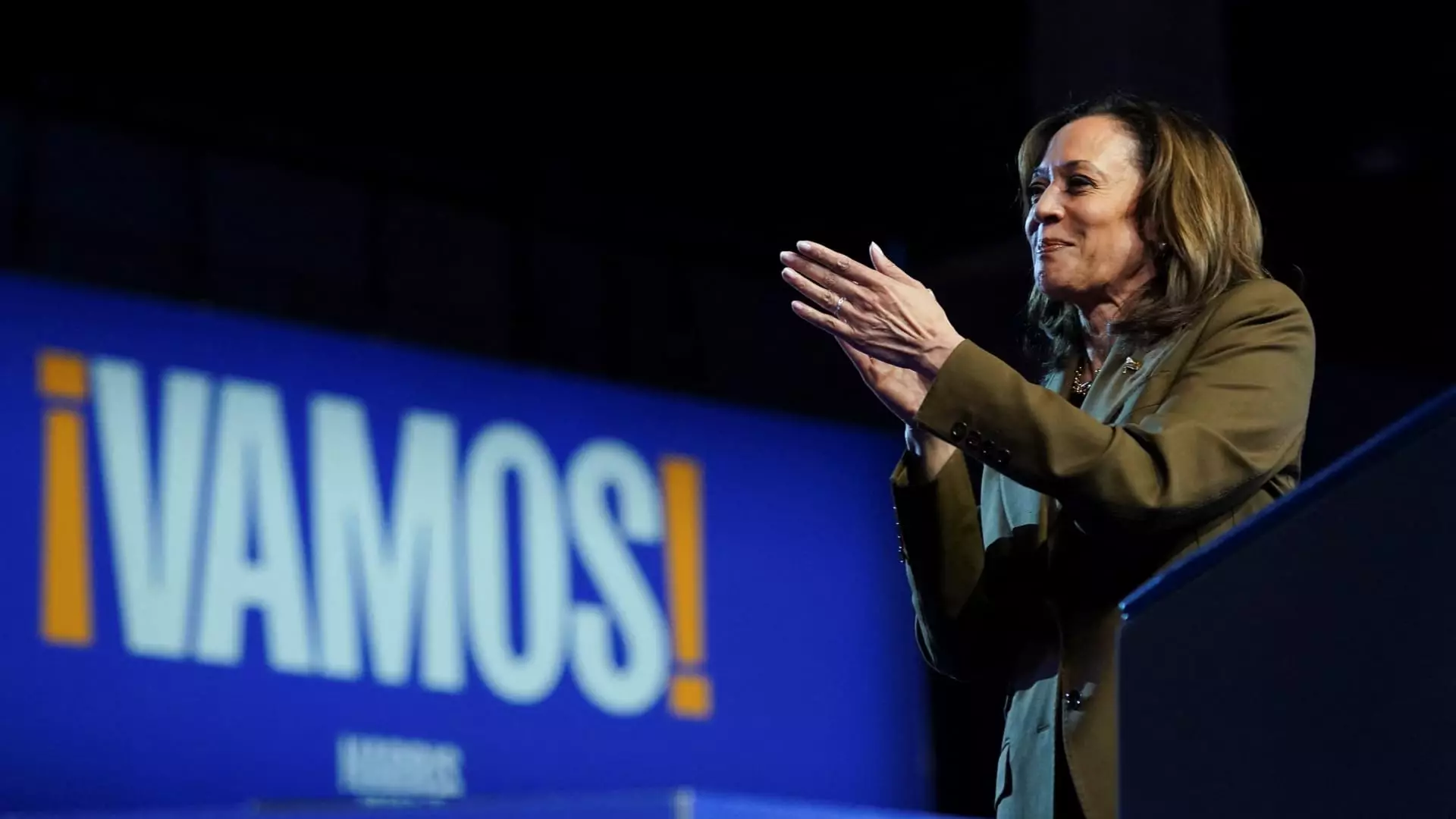The Harris campaign is making a strategic move to reconnect with Black and Latino communities through a series of outreach events focused on small businesses in six battleground states: Arizona, Georgia, Michigan, Nevada, North Carolina, and Pennsylvania. While Vice President Harris will not personally attend these events, her absence does not diminish the importance of this initiative. Instead, it allows local elected officials and community leaders to take the lead, fostering a sense of ownership among constituents. This tour, aptly named “Small Business for Harris-Walz,” underscores the campaign’s intention to not only reach out to key demographics but also highlight the critical role small businesses play in sustaining local economies.
As the electoral landscape shifts, particularly as Donald Trump makes inroads among Black and Hispanic voters, the Harris campaign is under pressure to turn the tide. Recently, Trump has made overtures to these communities, claiming that under his leadership, they would benefit substantially. In countering this narrative, the Harris campaign is aligning its messaging with previous Democratic successes while simultaneously addressing the unfulfilled needs of these groups. This proactive approach is crucial; the campaign aims to emphasize Vice President Harris’ commitments to bolstering small businesses and reducing economic disparities, which resonates strongly with the challenges many face in the aftermath of the pandemic.
Richard Garcia, the Harris campaign’s small business engagement director, remarked on Harris’ steadfast commitment to small business owners, drawing a stark contrast between her vision and Trump’s self-serving policies. The campaign has recognized that minority-owned businesses have been disproportionately affected by economic downturns, particularly during the pandemic. Harris’ proposed initiative to significantly expand the tax deduction for startup expenses from $5,000 to $50,000 reflects a broader strategy to empower entrepreneurs and foster economic recovery. This proposal is not merely a financial incentive; it represents a fundamental shift towards recognizing the importance of supporting local economies for long-term stability and growth.
The upcoming events will not just serve to disseminate information about Harris’ policies; they are designed to cultivate community involvement through organizing events, volunteer training, and house gatherings. Such engagements encourage dialogue, allowing constituents to voice their concerns while fostering a collaborative atmosphere. This grassroots initiative positions Vice President Harris as a relatable figure who understands the day-to-day realities faced by small business owners, especially those from marginalized communities.
As the campaign unfolds, maintaining momentum will be essential. Harris’ focus on small businesses as a cornerstone of her campaign strategy may well serve as a template for responding to Republican advances among traditionally Democratic voter bases. By promoting economic equity and fostering community relationships, the Harris campaign aims not only to revitalize its backing among Black and Latino voters but also to establish a resilient political platform that champions the needs of small businesses. The next week will be critical in assessing the effectiveness of this initiative as the campaign seeks to build trust and support leading into the election cycle.

Leave a Reply